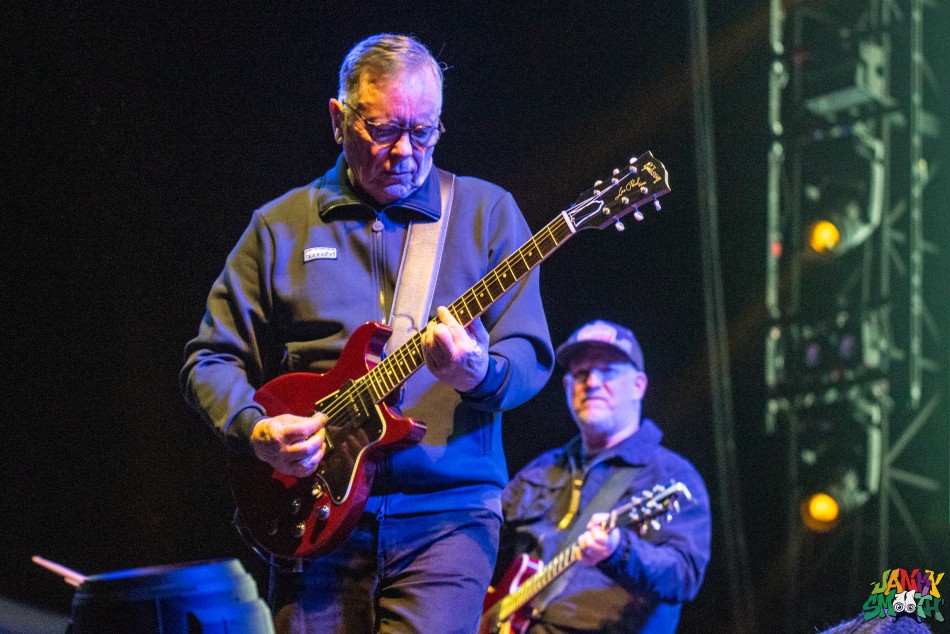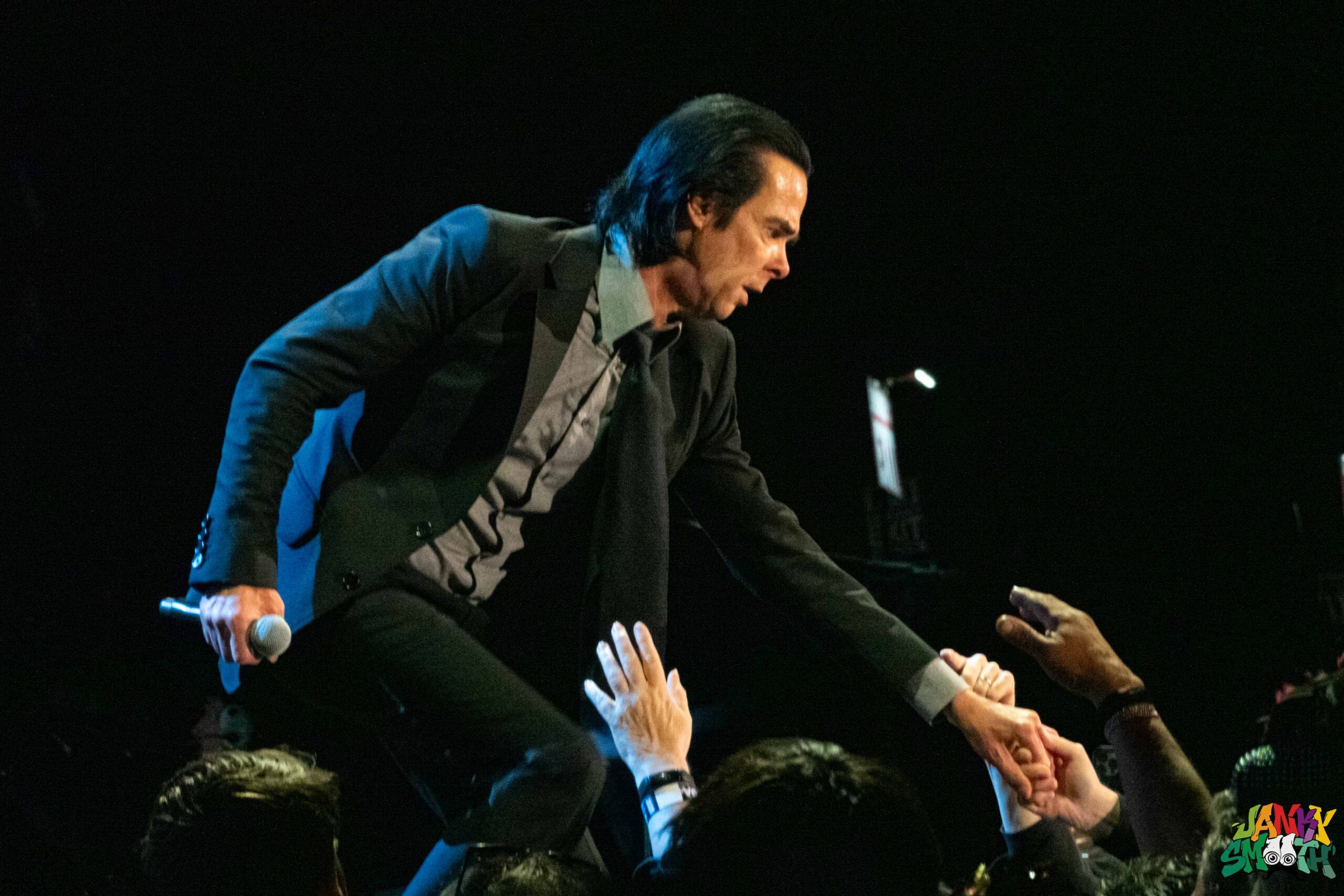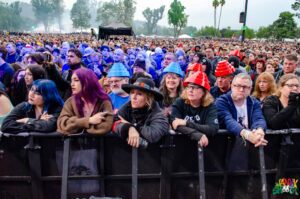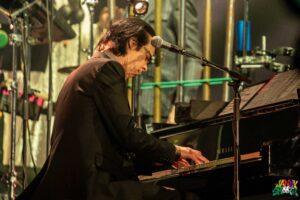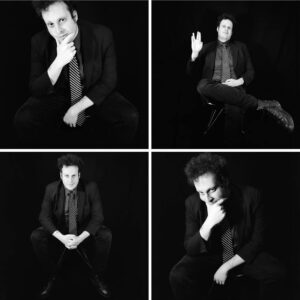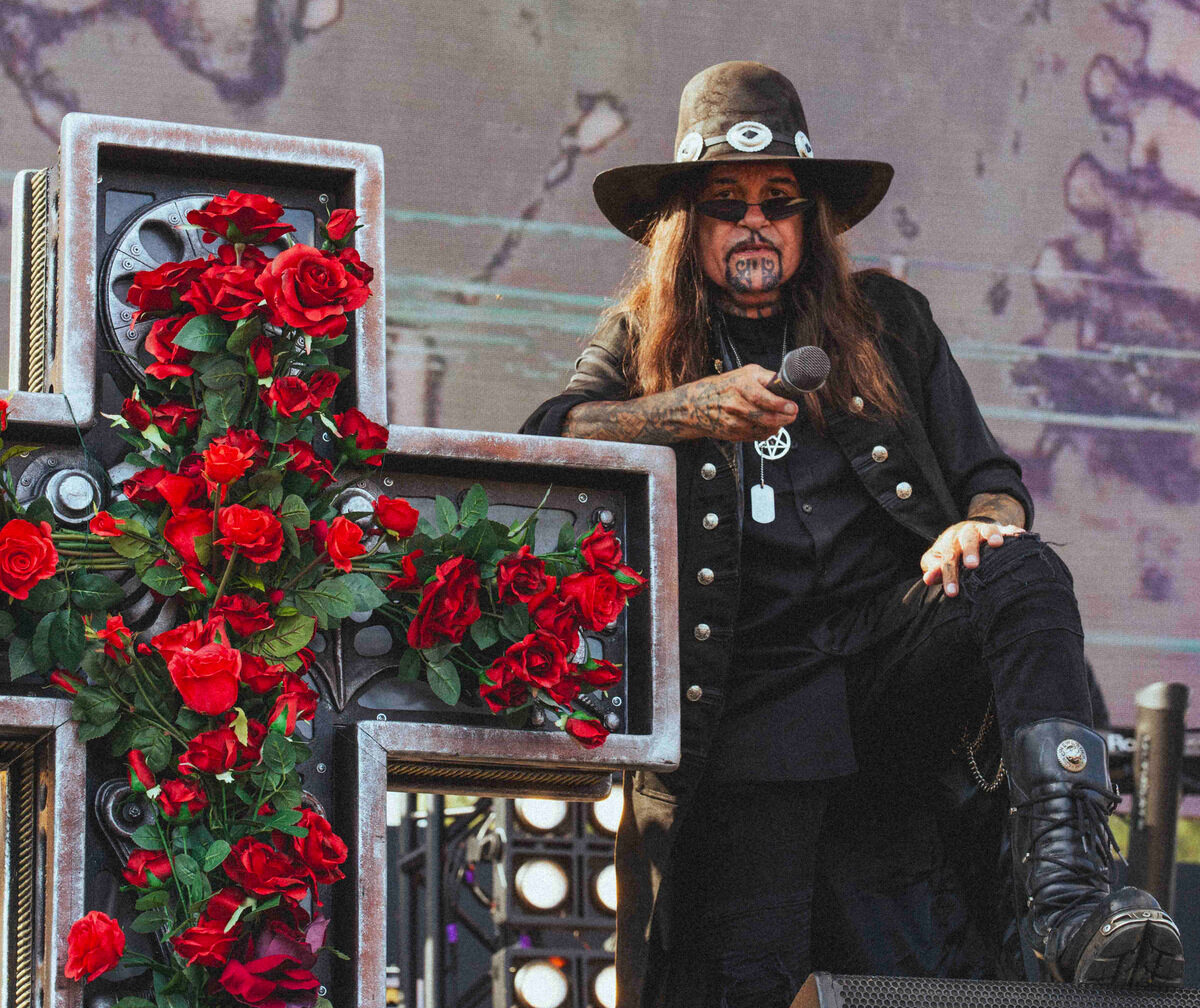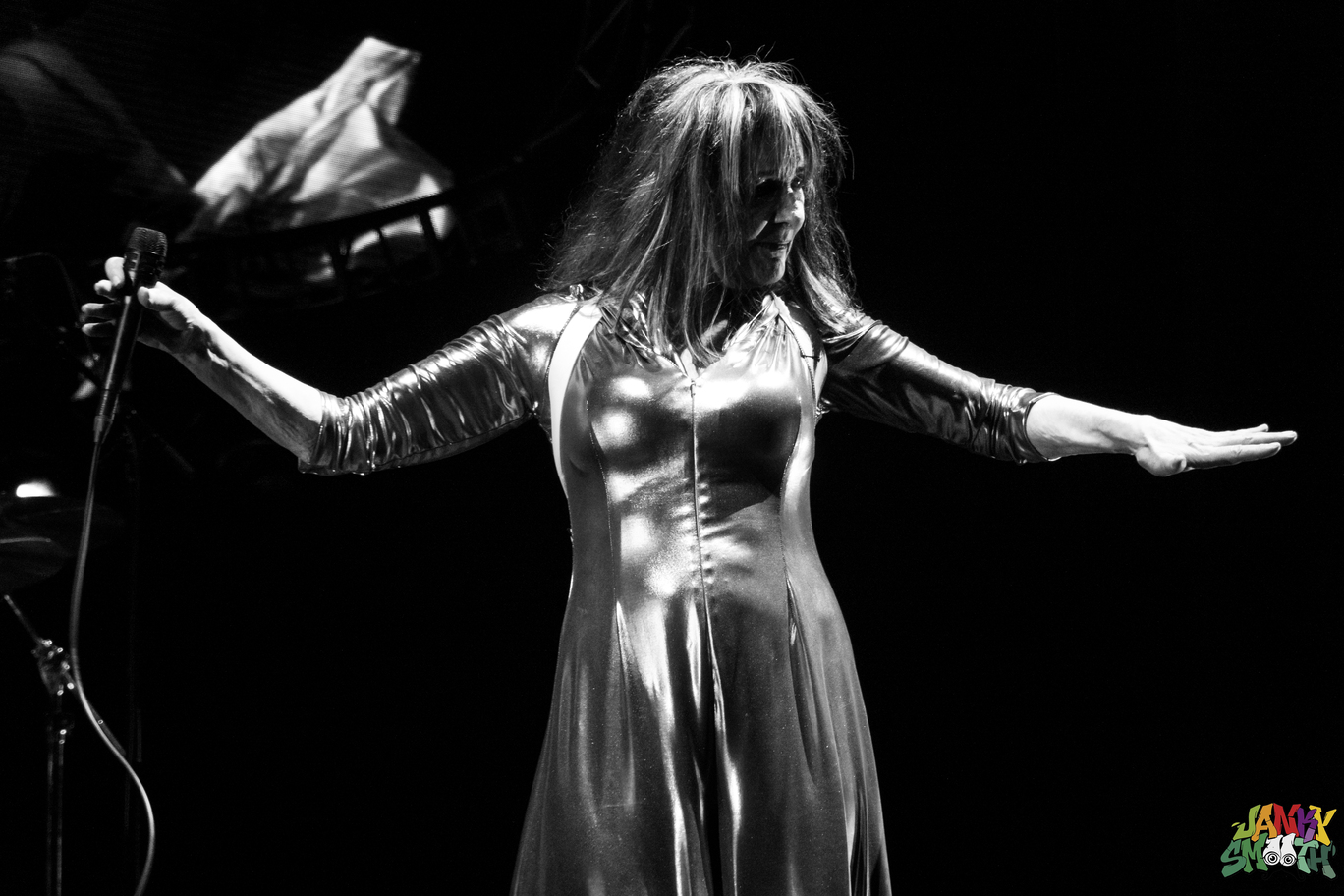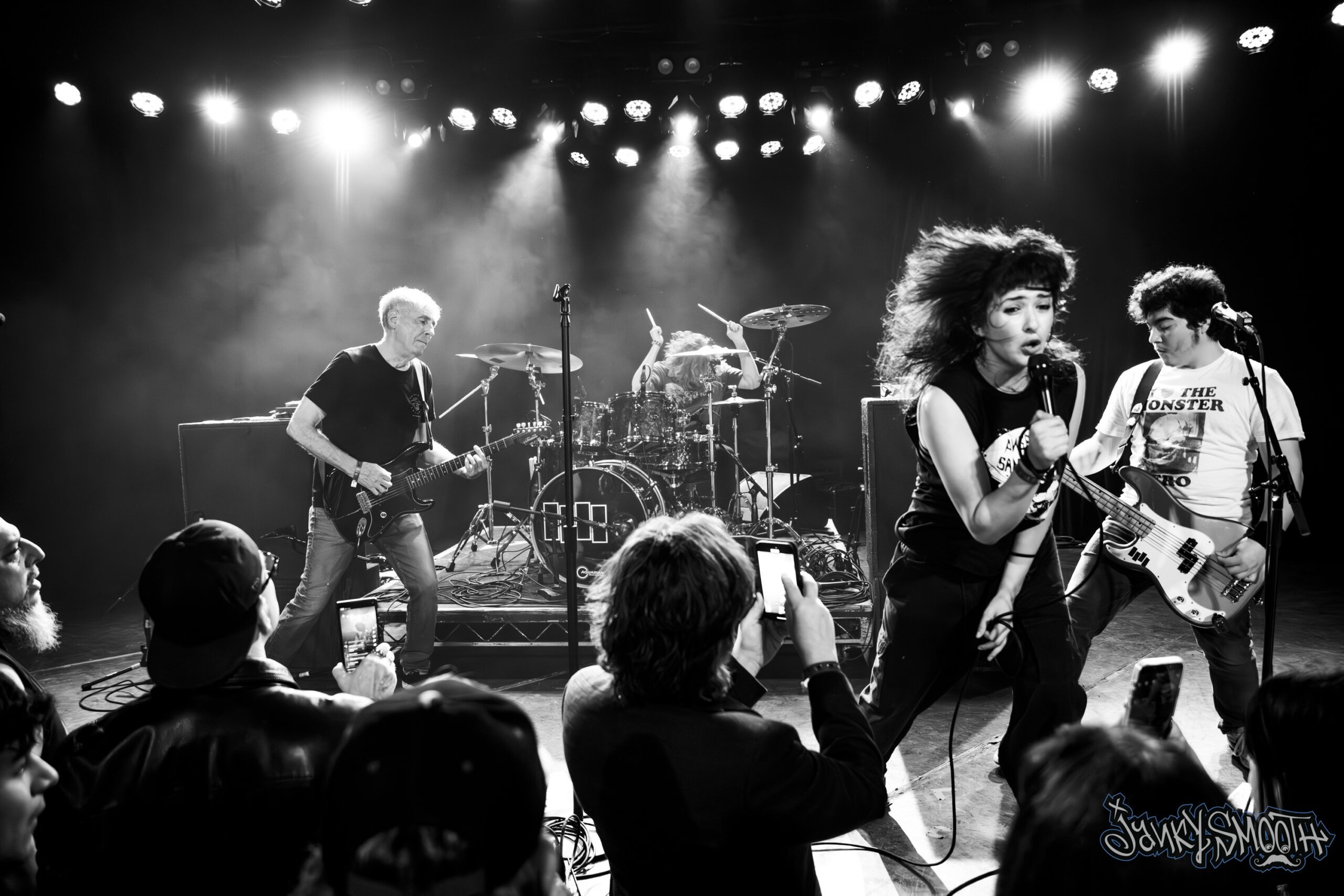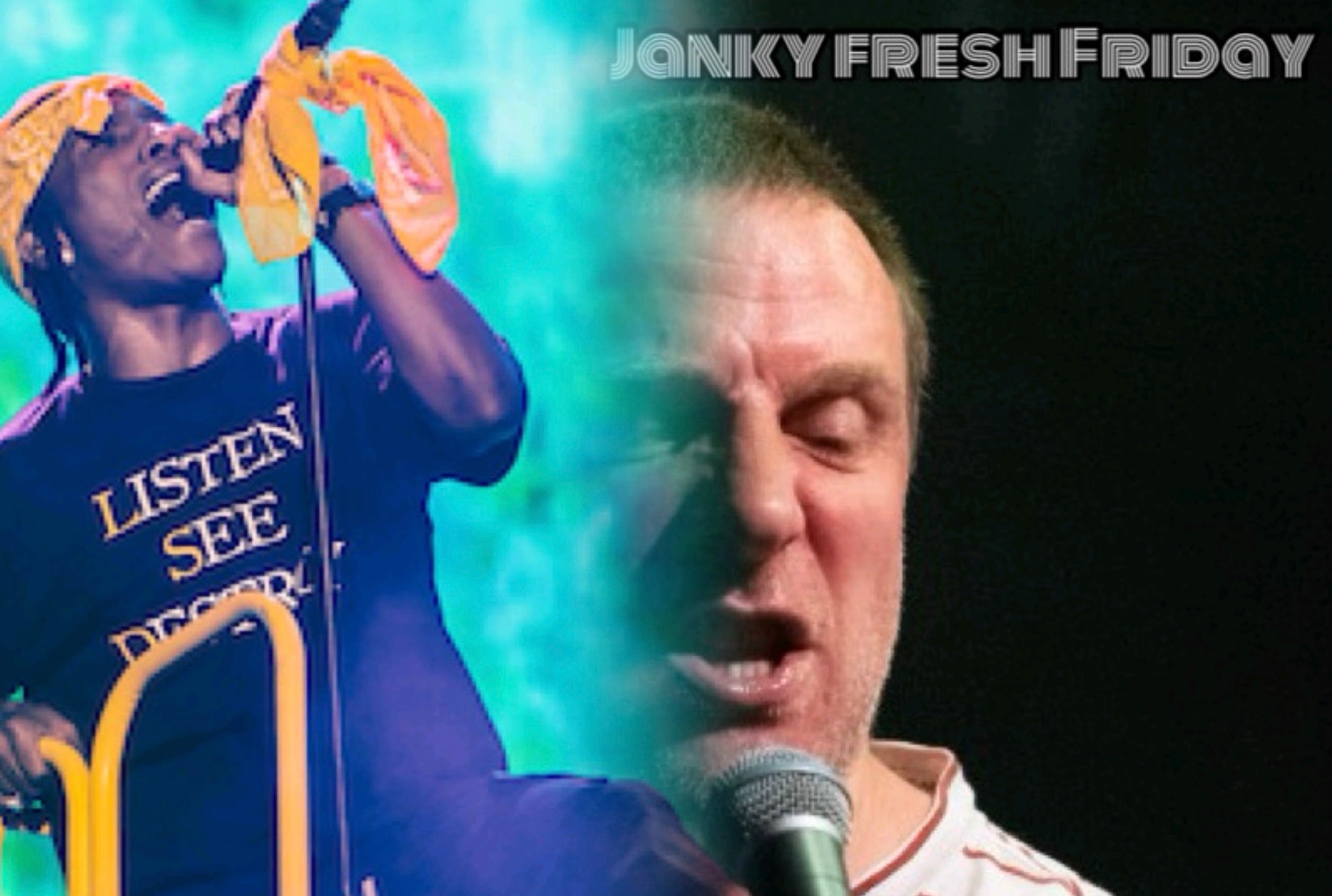Cruel World 2025 at the Rose Bowl was the fourth iteration of the festival, but some strange alignment in the distant goth cosmos caused a number of firsts in Cruel World history. Rain fell on Los Angeles’ goth community as they all gathered at the Rose Bowl for what music fans recognize as goth prom. Cruel World is much more than a goth fest, though—’80s music, metal, and punk all performed in gloomy Pasadena over the weekend. Never before did the concertgoers, wearing their finest layers of black, actually dress appropriately for the weather—until now. Some came to Cruel World to see Devo “Whip It” like it was 1980, some came to be in the palm of Nick Cave’s “Red Right Hand”, others came just to get a one-day vacation with New Order before “Blue Monday.
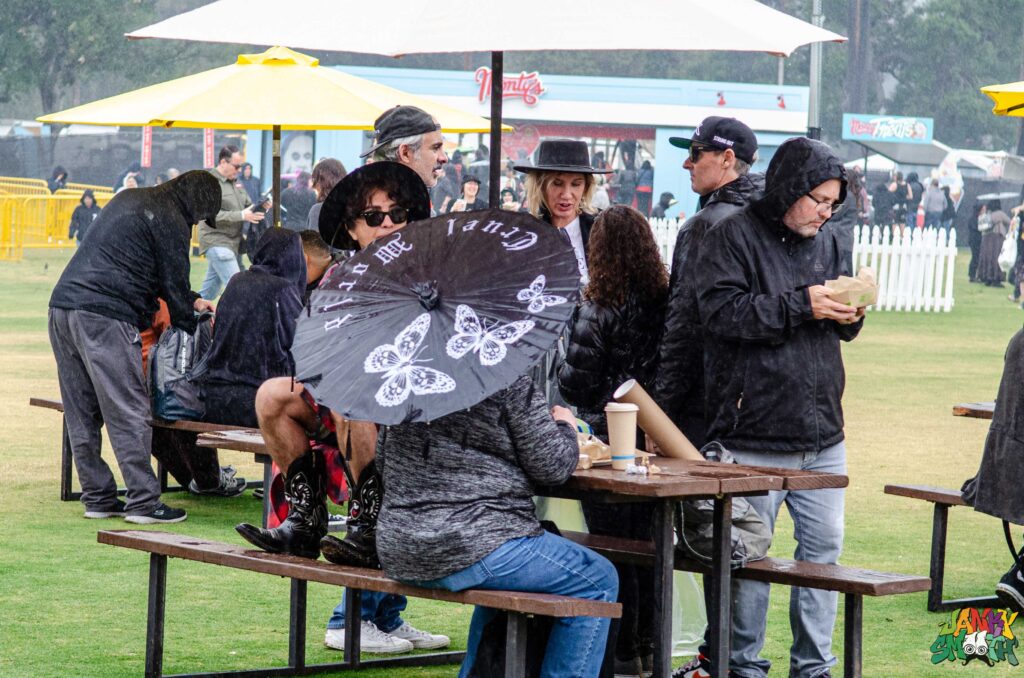
Whatever the motivation, the festival once again found appropriate meaning in its name. This year it was cold and dreary, with imported London fog infused with LA smog. Most people prefer not to experience a concert drenched from head to toe, but as a departure from the brutal heat of previous years, it had some upsides. The rain forced many Cruel Worlders looking for shelter to find it in Club Doom—the festival’s official dance party, going on all day and night during the many sets. Songs like Skinny Puppy’s “Assimilate” or Front 242’s “Headhunter” acted like pied piper ballads, leading my crew straight toward their dooms. The dance floor was only one vibrant happening at Cruel World this year, though. There were many audiences worth standing in the rain for, and many that appeared once the clouds dried their tears. I must say, I came into Cruel World with my own negative energies. There were certain artists I told myself I wasn’t going to see but wound up in their audiences anyway, only to change my mind and deeply enjoy their sets—turning my negative energy into positive feedback. Even though it draws together goths under the pretense of enjoying sad music that relieves our traumas, no one really leaves Cruel World upset.
related content: Cruel World 2024: A Legacy Forms in Year 3 at The Rose Bowl
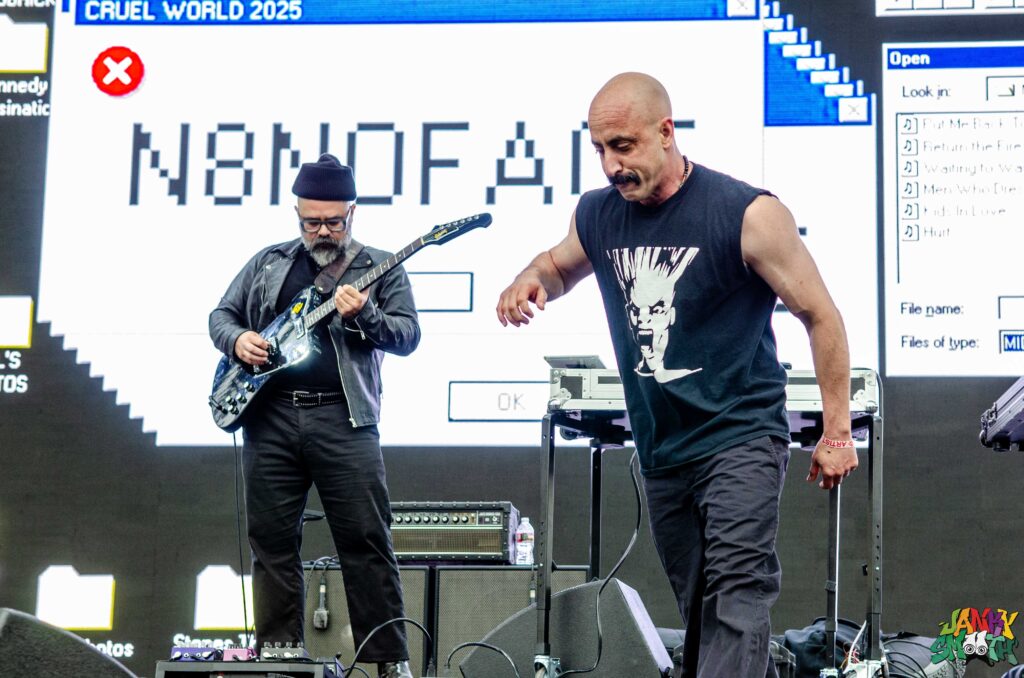
The first artist I saw on my jaunt through grey, miserable Pasadena was Light Asylum, a dark electronic music veteran bridging together the underground’s most infectious rhythm with pure soul and sensuality. Among the many artists in her subgenre—that dark dance music associated with Adult. or Pixel Grip—Light Asylum is both a godmother and mentor. Her blessing breathes fresh life into many of these artists.
Her own music, though, is a tour de force of fierceness and moody darkwave. I had been wanting to see her live for a very long time, as if not seeing Light Asylum left a glaring and empty space in my understanding of modern goth music. Watching her make the early crowd at Cruel World break out into unabashed club dancing gave me a spurt of energy that lasted all day.
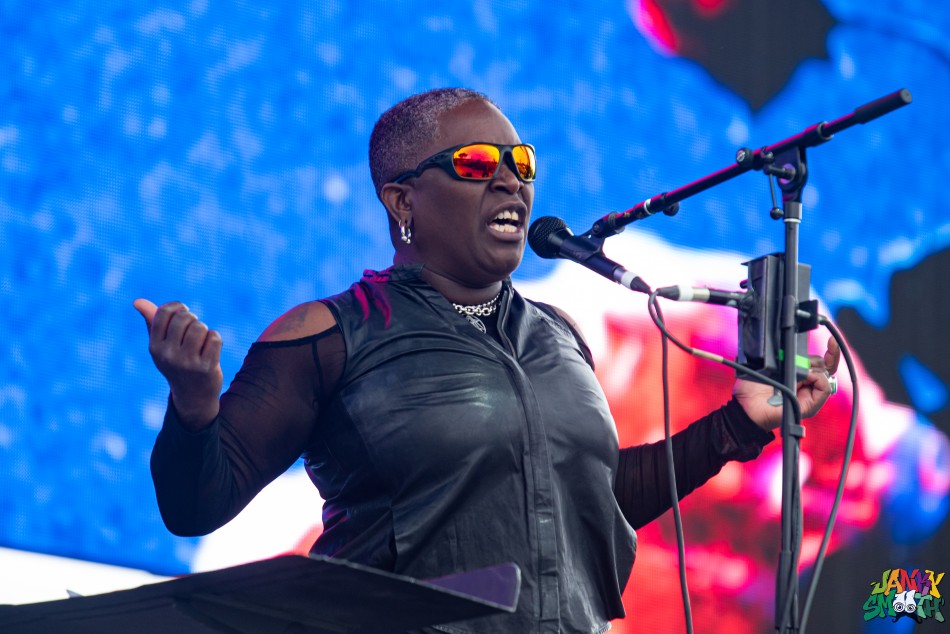
This was followed by my first time seeing She Past Away, a goth duo from Turkey that started a sonic movement in modern goth, inspiring numerous current bands imitating their sound. Their minimalist, danceable, dungeon-style darkwave embodies a truly dark, macabre character while still getting listeners to let loose in the audience.
The sort of images the sounds of She Past Away evoke are cobweb-covered crypts and blood-drained victims of vampires. When you hear a modern goth band and feel the moodiness underlying their sound, don’t forget to send your roses to She Past Away—the modern reinventors of goth.
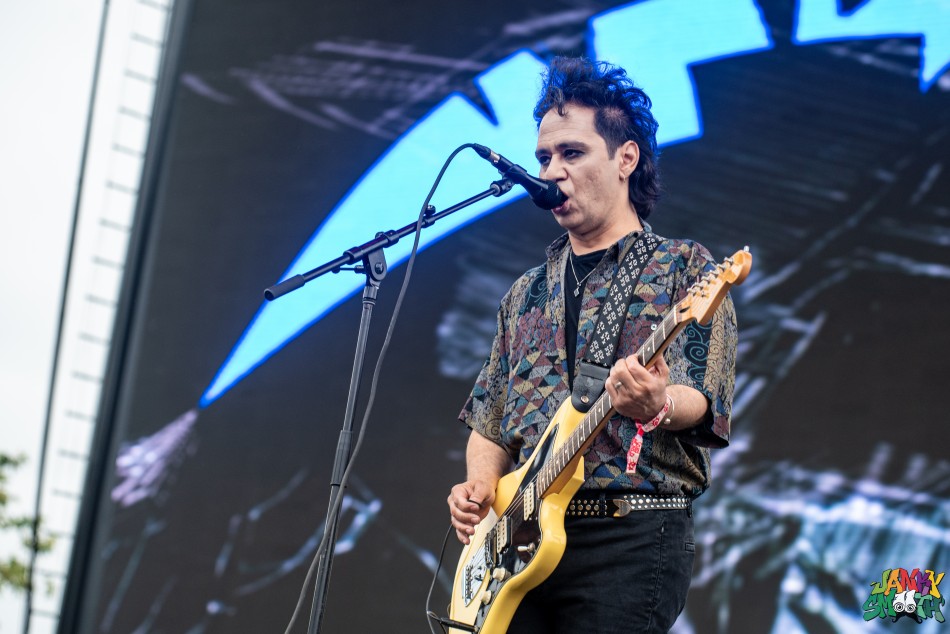
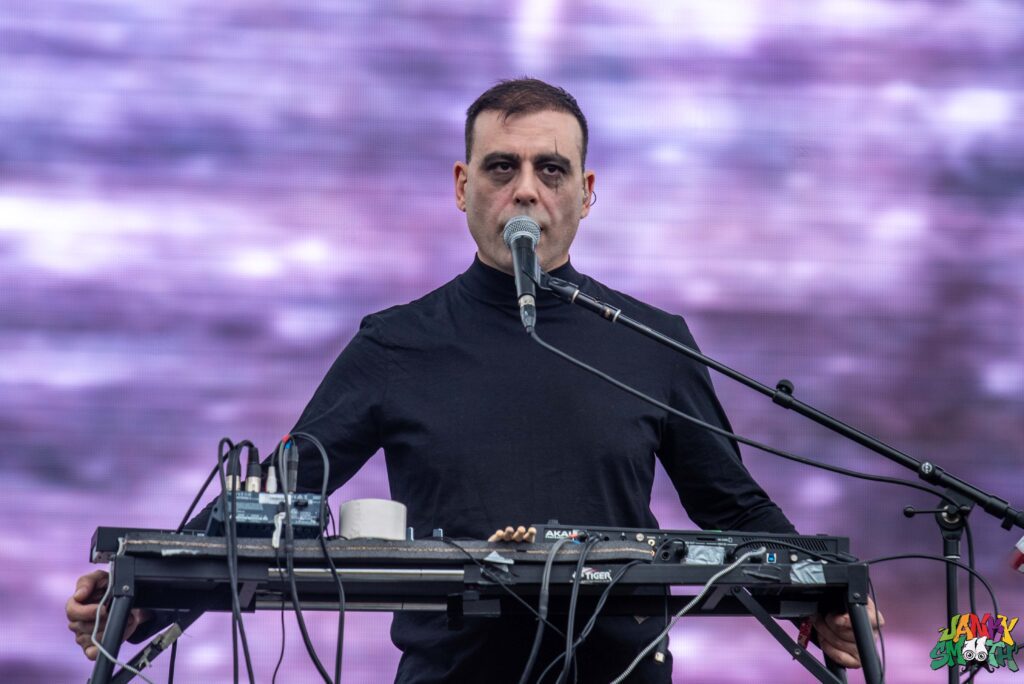
Nation of Language always pulls on my heartstrings. I never leave their shows without feeling emotional and inspired. They do what all the musical greats have always done: perform music with clear intentions and heart, with songs and lyrics listeners understand—regardless of whether they can make out every word.
related content: Desert Daze 2022: 10 Years In The Evolution Of A Music Scene
The poetry shines through the ’80s vibes of their synth-pop sound. Nation of Language songs empower listeners to seek the love that they deserve, that makes them truly happy. Their singer, Richard Devaney, explodes with authenticity that bleeds out of every pore. Through him, the band is able to transcend their time and their sound—as a current band that feels like a throwback, making heartfelt, danceable music.
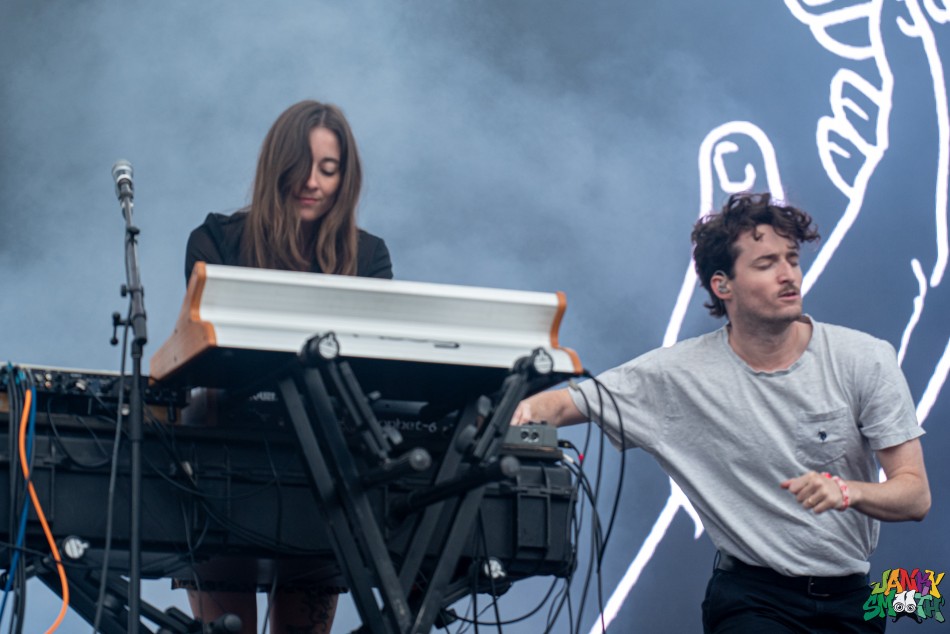
Touring between stages and Club Doom through the rain, mud, and black leather, my crew and I enjoyed the sounds of Stereo MC’s, Alison Moyet, and The Buzzcocks. Seeing the ’80s music of the previous two blasted in my face for the first time instead of over the radio was a treat, while seeing the legendary British punks, The Buzzcocks, perform one of my favorite songs, “Sick City,” really hit home as a moment I’d walk away thinking about long after the festival’s end.
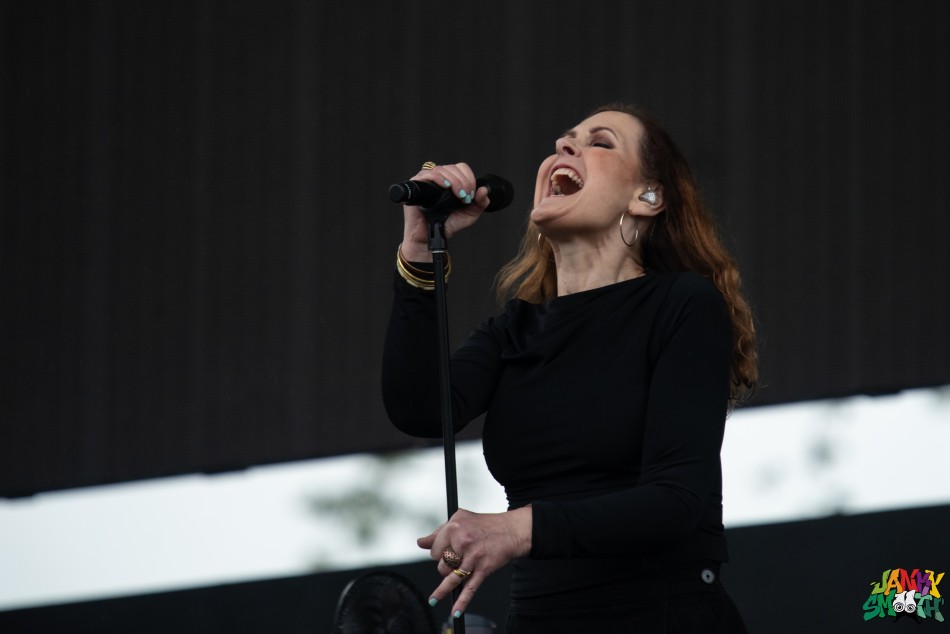
Goth music often has a clean sensibility—the sounds ought to be smooth, the clothes spotless. Buzzcocks injected a sense of punk rock grime and grit that gave the audience a sense of place. This is dirty LA, baby.
Chelsea Wolfe was one of the bands I was intending to miss this festival, wanting to put OMD above any competing sets. However, when I found myself there, inebriated and vulnerable, I found her music perfectly matched the mood Cruel World wants to give its audience.
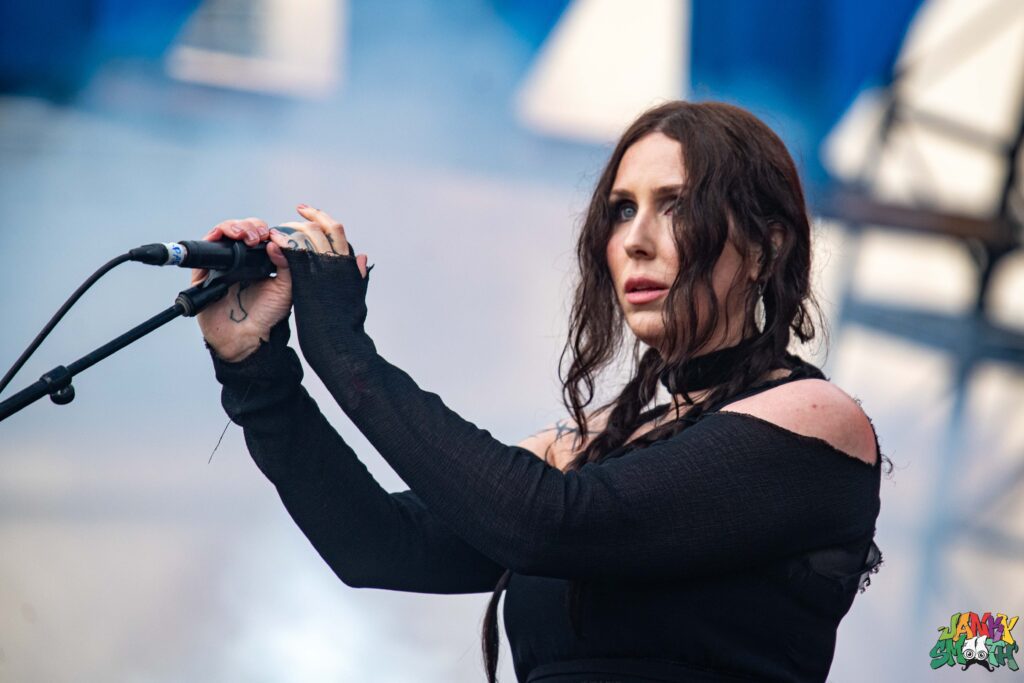
How do you transform a green, beautiful Brookside at the Rose Bowl into a dark, depressing atmosphere? The music of Chelsea Wolfe is all you need. With transportive soundscapes and evocative singing, she transcends metal, goth, or any genre. She is the darkness itself, from which these styles pull inspiration—the black before the universe’s birthing moment.
She sews music from that anti-matter essence, and if you’re in the right state of mind and heart, she will convert you into a fan by puppeteering the strings of your psyche.
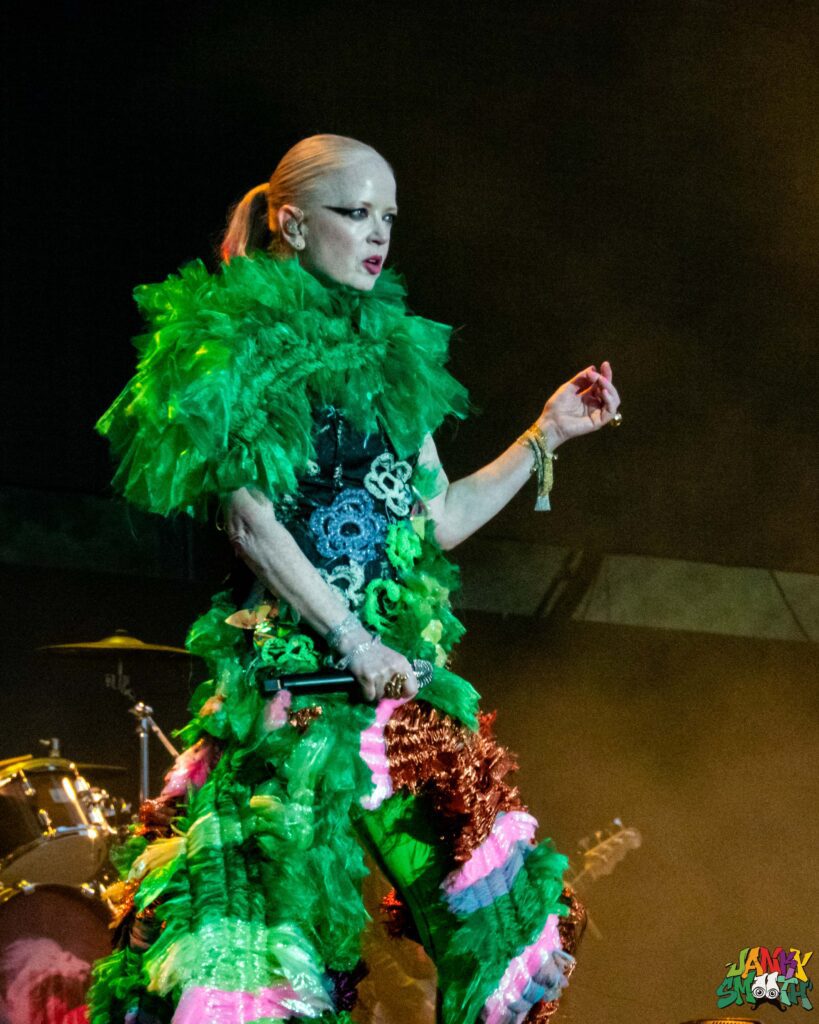
The second artist that would fit into that category was Garbage. Seeing as I’d seen both them and Devo previously, I figured I’d make the obvious choice for an LA punk and see Devo again. However, given the tastes among the goth chicks of our group, the maladies of Shirley Manson held too much resonance for Mothersbaugh to compete with.
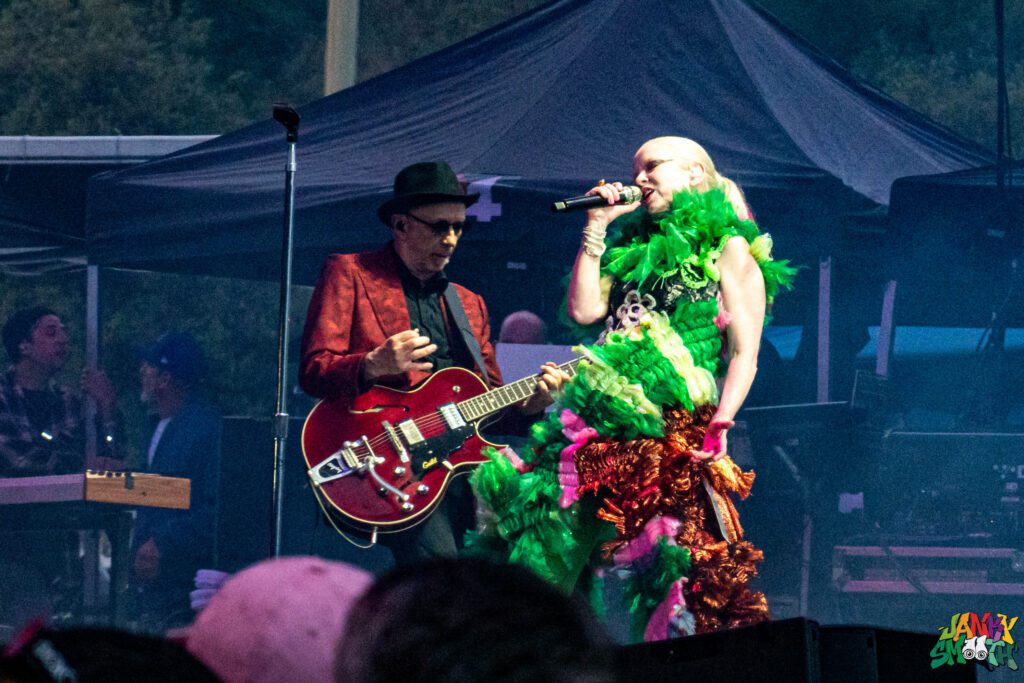
related content: Cruel World 2023- Redemption and Romance at The Rose Bowl
Garbage thoroughly rocked the audience with powerful tracks I remember being all over the radio and in movie soundtracks in the ’90s. As a millennial, this was one of the few moments of the festival that truly felt nostalgic. And because so much of the festival is dedicated to ’80s music, aesthetics, and Gen X, not tapping into nostalgia at all would be missing a crucial component of the festival’s ethos.
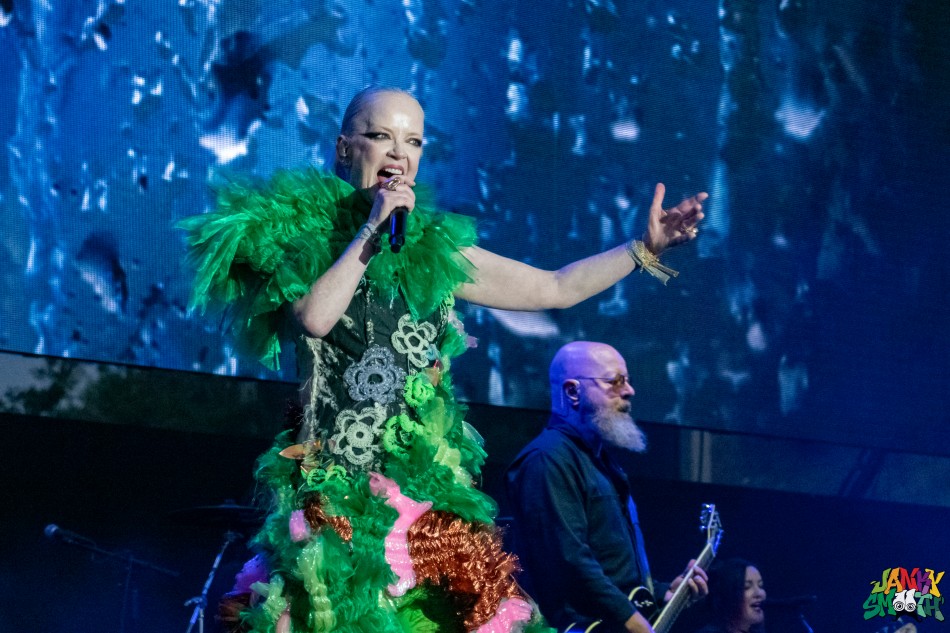
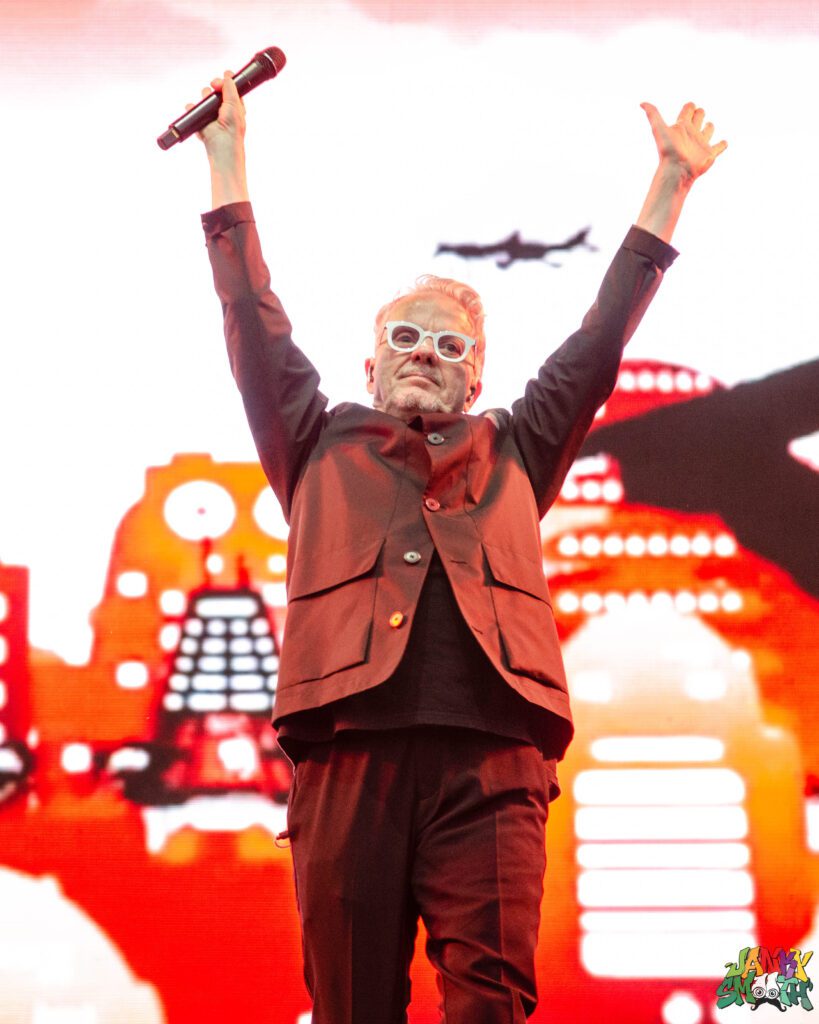
For many—and especially me—Nick Cave and the Bad Seeds were my shinning Cruel World highlight. I had never seen Nick Cave live until this point, and it was my reason for being at the festival at all.
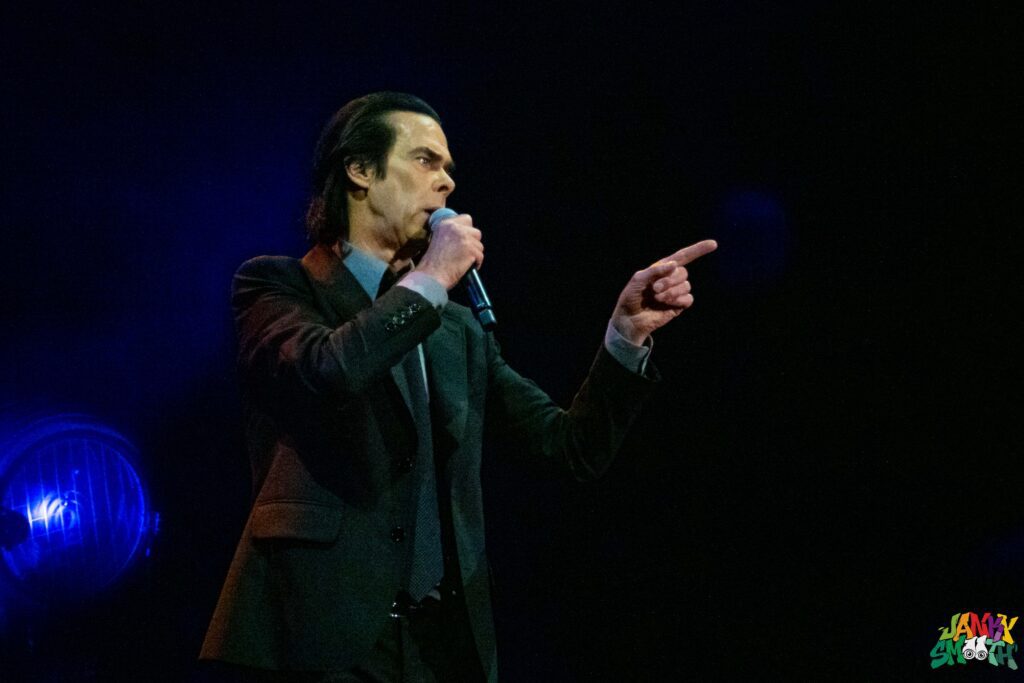
Before this, my understanding of Nick Cave was as yet another crooner that came from authentic punk music. Now, after having seen him, my understanding is of a musical icon who taps into the most elemental forces of the human experience on Earth.
With black-and-white cinematography accompanying their epic stage setup—which featured incredible players, a choir of backup singers, and Cave himself romping across the audience to terrorize the front row with unleashed passion and raw punk rock power—you get the sense every song Nick Cave performs is somehow massive in scale: about the follies of man, the vulnerabilities of gods, the timeless battle between man and god.
related content: Forty Years of Youth: Nick Cave and the Bad Seeds at the Forum
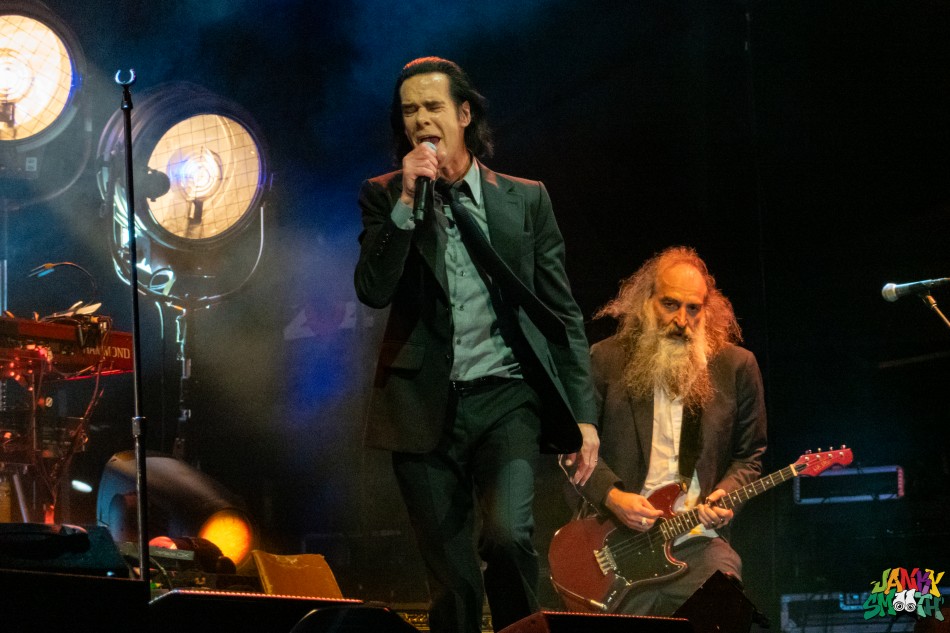
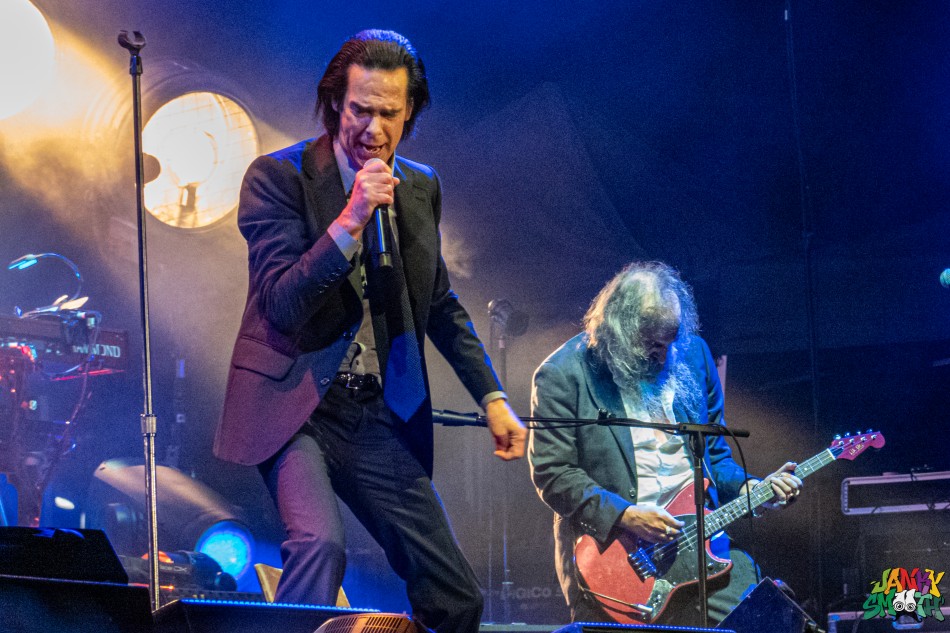
You can still feel the punk in his performance style, but inside the music and his delivery, you feel him telling his audience their own story—of how they wound up here on this Earth after so much trial and tribulation.
You see Warren Ellis looking like the bearded wise man on the cover of the children’s sci-fi classic The Giver, and he gives you the sense you’re seeing music created by a hermetic guru atop the mountain peak. When that guy plays a note on his violin, he doesn’t just pluck the string, he strikes it as if making a display of power for the audience.
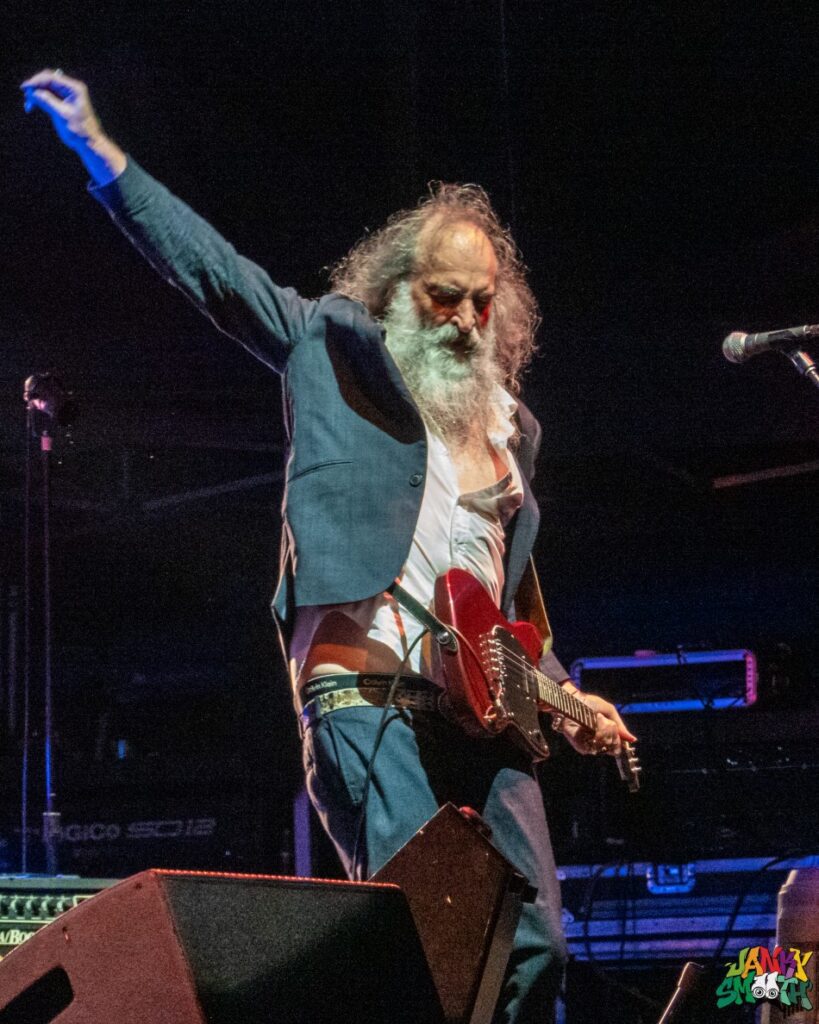
What Nick Cave does is use rock and roll to tell epic poetry about the creation and destruction of man and Earth—whether it’s through a story about Elvis like the song “Tupelo,” a sad song like “Joy,” or a moody, suave, Paradise Lost-inspired one like “Red Right Hand.”
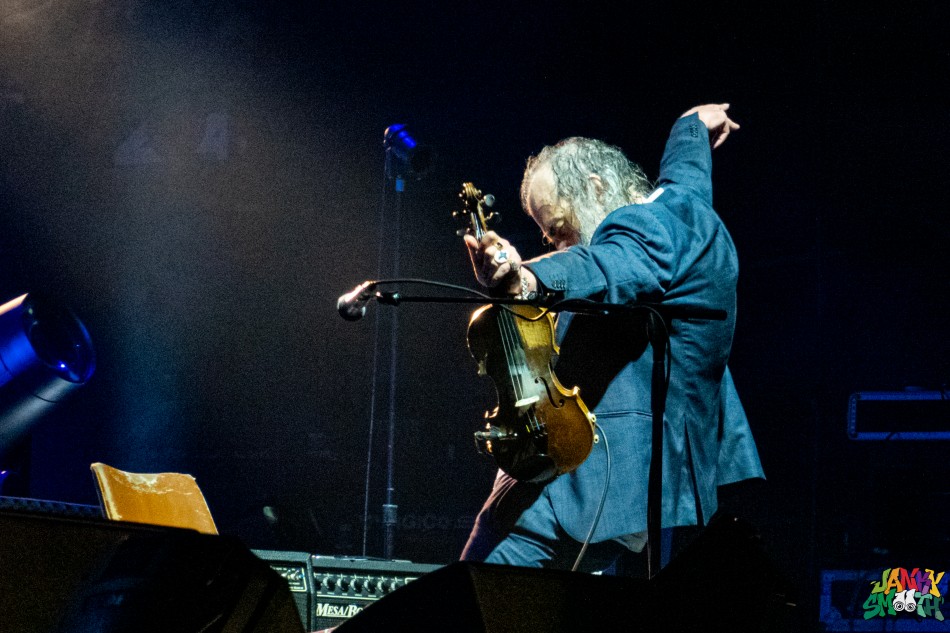
As soon as Nick Cave performed his first song, “Frogs,” the celestial soundscapes jangling in the background reduced me to one singular thought, that for an artist to take-on the trajectory from gritty, sensual goth like The Birthday Party to making music that sounds like this—that artist must’ve experienced some massive spiritual, emotional, and psychic breakthrough.
A breakthrough that led them to see the full expanse of the universe’s truth. From then on, there was no use for punk music. The only purpose after seeing that truth—for Nick Cave—was bringing it back and retranslating it for audiences through his music.
In the next song, “Tupelo” Nick Cave preluded the song with a little banter about Elvis, then when the band was ready to play, he gave the video crew a cue that made the camera do a hard and fast zoom out from close up to full image of Nick before the audience. You don’t do a camera move like that unless you mean business. The meaning of a camera move like that is almost like bearing the powerful hand of God to tell the concert’s story. It’s a move Alejandro Jodorowsky employed in his movie The Holy Mountain, and like Jodorwosky, Nick Cave’s music takes inspiration from all the world’s most resonant arts from cinema to literature to poetry and rock & roll.
Some musicians make music about love fulfilled and love unrequited and audiences connect and identify with it because they’ve lived it. However, when an artist chooses to make existentialist music and epic poetry about wrestling with God, we all connect with it too, because audiences are just as familiar with spiritual struggle as they are with romance or desire.
Of all the takeaways I had from Cruel World, I didn’t expect mind expansion or spiritual growth to come from it. Nick Cave made me feel the enormous weight of the universe and God’s complicated relationship with man and Earth—and he made it seem lighter and manageable in the grand scheme of things, simply by reducing its massiveness into a few memorable rock and roll tunes.
Words by: Rob Shepyer
Photos by: Albert Licano
